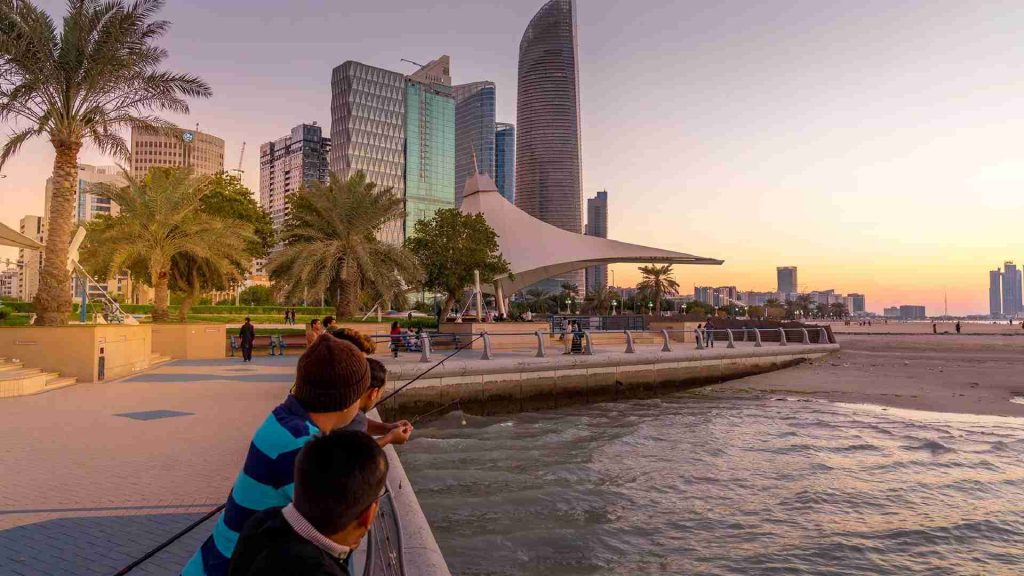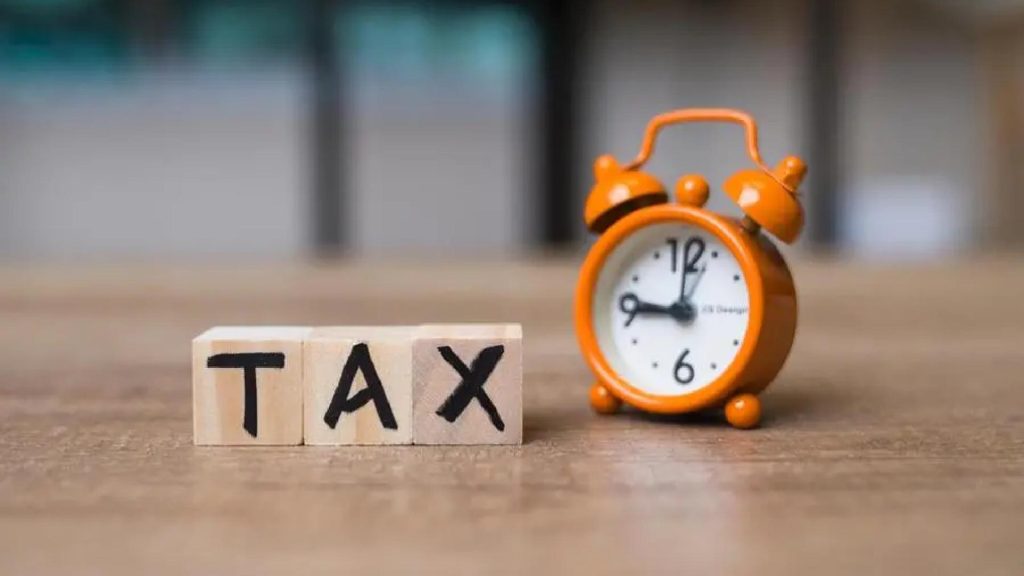Dubai is attracting a lot of ex-pats. The main factor behind this excitement for Dubai, besides the great standard of living, is the absence of taxes there. On income earned in Dubai, there is no income tax. Also, the bulk of products and services are exempt from sales tax. Thus, it is a common misconception that Dubai imposes no direct or indirect taxes on its citizens. However, people still wonder, is Dubai tax-free? It is a myth, that much is clear.
In this article, we will be answering the question: is Dubai a tax-free country? Let us observe:
1. Learn the basics about ex-pat life in the United Arab Emirates

It goes without saying that competent expats from all over the world are drawn to visit Dubai by its tax-free lifestyle. The United Arab Emirates (UAE) is often regarded as the Middle East’s financial and commercial center. There is a sizable expat community there. Around 88% of people in the United Arab Emirates are expatriates from all over the world.
The UAE is a prosperous region of the world that is becoming more and more important in both international trade and tourism.
Opulent towers and hotels now dominate some places, such as Dubai and Abu Dhabi, where large infrastructural investments have been undertaken.

The level of living is high for individuals who earn an international pay. There are up-to-date lodging and healthcare options, reputable international schools, and modern facilities.
Also, there is a ton of entertainment in the exciting cities of Dubai and Abu Dhabi. This features fantastic beaches, water activities, indoor skiing, top-notch dining options, and huge retail centers.
Yet all of this has a cost. In recent years, the UAE’s cost of living has been rising. Nonetheless, because Dubai has minimal taxes, ex-pats continue to relocate there.
2. Know the answer to is Dubai tax-free?
Before moving here, people wonder if Dubai tax-free country.
Career possibilities, tax-free income, opulent hotels, and year-round sunlight are just a few of the factors that draw people to Dubai. The emirate consistently performs highly on indexes measuring foreign direct investment, making it a magnet for entrepreneurs and businesspeople.
Some mistakenly believe that there is Dubai no tax because there is no income tax there. Also, the emirate has numerous economic free zones that provide business benefits; such as, exemption from corporate tax, zero customs duties, and full restitution of capital and earnings. While there is no sales tax on the majority of goods and services and no earnings tax on income in Dubai, the city is not entirely tax-free. Consequently, the answer to whether is Dubai tax-free, is no.
Here are some of the Dubai tax rates there are in the region:
2.1 Income tax
There is not any individual tax register or reporting requirement because the UAE does not tax individuals’ income.
The majority of the nation’s tax revenue comes from the corporation tax imposed on a small number of international multinational enterprises.
2.2 Corporate tax
There is no federal business tax system in the UAE at the moment. Corporate taxes do exist, nevertheless, on a per-emirate basis. In actuality, these are exclusively enforced on foreign oil and gas businesses or foreign bank branches, despite the fact that each emirate establishes them by tax decrees.
A federal Corporate Tax (CT) would be implemented on commercial profits of any mainland business entity with a UAE incorporation beginning on June 1st, 2023, according to recent legislation revisions published by the UAE. The tax will also apply to branches of international and UAE businesses as well as foreign legal entities with offices in the UAE.
9% is the upcoming tax rate. Its implementation is a step toward ensuring that the UAE complies with the Base Erosion and Profit Shifting (BEPS) initiative of the OECD. To get a tax registration number, businesses liable to the CT must enroll with the Federal Tax Administration.
2.3 Import tax
Dubai produces few things but oil, hence the majority of its goods must be imported, and most of them are tax-exempt. Dubai, a Muslim nation, imposes hefty taxes on goods that are judged to be against Islamic ideals or dangerous to society since its tax system is in line with Islamic philosophy. Products with high tax burdens include alcohol, cigarettes, firearms, and ammunition. Alcohol is subject to a 30% sales tax on top of a 50% import charge.
2.4 Tourism/Entertainment tax
Dubai levies hefty amusement fees. The economy’s largest sector, tourism generates significant amounts of tax money for the government. The majority of eateries in Dubai now choose to tack on a 10% “service charge” to the overall bill. There are additional tourism taxes that you may or may not have to pay, such as:
- 5% VAT.
- 7% Municipality fee.
- 10% Property service tax.
- • “Tourism Dirham Charge” or “Hotel Tax,” which ranges from 7 to 20 AED per room, per night (varies according to the hotel grade).
- 6% Tourism fee.
According to the theory, because these taxes are for visitors, local Dubai residents do not have to pay them. Theaters, theme parks, and other forms of entertainment and recreation are also subject to taxes.
2.5 Utility bill and transportation tax
When utility bills are created, a council tax is assessed, making energy taxable in Dubai; making it a tax-free Dubai. On busy routes and highways, Dubai also levies tolls. The Roads and Transportation Authority (RTA) are in charge of collecting these taxes, which go into Dubai’s enormous public budget. The state also owns the right to charge for parking, and long-term temporary parking cards or a pay-as-you-go system are used to collect fees for parking in public places.
2.6 Property and withholding taxes
Both withholding taxes and an official property tax are absent from the UAE. Nonetheless, foreign nationals who rent or own property in Dubai must pay the Dubai housing fee. The fees are a donation to city services like trash management, security, and food safety.
The cost is 5% of the average rent for tenants, while the Real Estate Regulatory Agency (RERA) Index is necessary to determine the fee for owners. A 4% transfer fee is in place when a sale occurs.
3. Do you know how to become a tax resident in the UAE?

Tax residency certificates (TRCs) are issued by the Federal Tax Authority and are valid for one year. If your contract is for six months and you remain in the emirate for 6 months, you will keep your status as an ordinary citizen of your country of residence for tax reasons, and your earnings will probably be subject to taxation there.
A “natural person” must have been living in the UAE for at least 180 days to be eligible for the TRC; on the other hand, a “legal person” must have been living there for at least a year. A UAE ID card is a must if you want to establish residency and work in Dubai.
3.1 Double taxation
Due to the double taxation agreements that the UAE has negotiated with a number of its major trading partners, Dubai is a desirable site for foreign investment. Companies with operational branches in Dubai and overseas might avoid double taxation thanks to these accords. You should be aware that the UAE and your home nation have a double taxation agreement as foreign investors. There are now over 130 agreements between the UAE and other nations that promote free trade and strengthen relations between nations; while the list is constantly changing.

Dubai has many tax advantages and investor-friendly rules that are beneficial for those deciding to make it their home, even though it is not totally “Tax-Free.” Given the high standard of living enjoyed by ex-pats, the various taxes that are in place are minimal.
Given the high standard of living enjoyed by ex-pats, the multiple taxes that are in place are minimal. So, there is no wonder why Dubai is tax-free. For those who can establish tax residence in Dubai and are from nations with double taxation agreements, the tax rate may be considerably lower than what they would pay in their native country, making Dubai a popular choice for ex-pats to live and conduct business there.
4. Obtain the help you need from KPMPRO Services
With our experience, KPMPRO Services can guide investors through the regulatory and legal hurdles of conducting business in the United Arab Emirates. Our team of professionals has significant knowledge of tax laws and company practices in Dubai, the entire UAE, and other GCC nations. With us, you can obtain work and residency visas, dependent visa solutions, company immigration card, and more.
If you need support with taxes in the area or another company’s services, we can help you. Give us a call at +971 43 316 688. In addition, you can send us an email at contact@kpmpro.ae.









